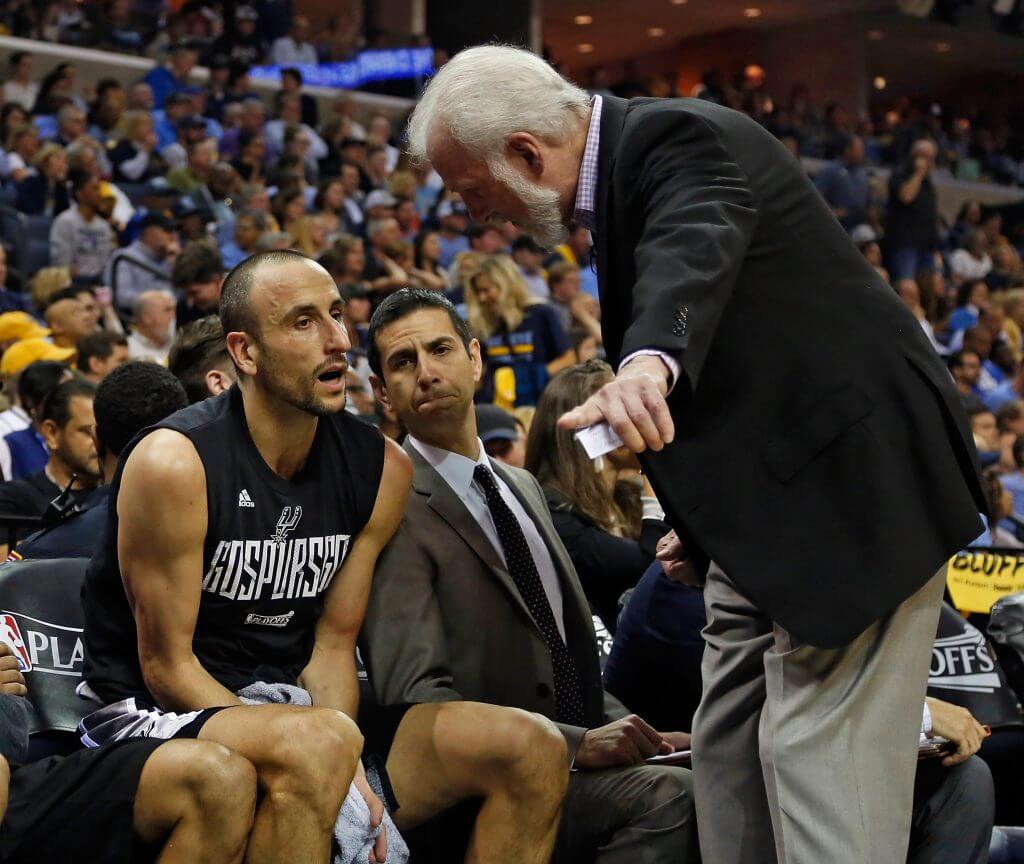
It was never about the 45 seconds.
If you decided that Gregg Popovich was a world-class ass because he dressed down sideline reporters who had the unfortunate task of doing in-game interviews with him during his Hall of Fame coaching career with the Spurs, you were wrong.
Not because he wasn’t, sometimes, a world-class ass to sideline reporters. I know. I was one of them for years and years and years with Turner Sports. You were wrong because you didn’t have enough information. You only saw the scowl and the sarcasm. But it wasn’t directed at me or Craig Sager or Michele Tafoya or Ric Bucher or Doris Burke. It was the idea that he had to interrupt his work to speak with us.
Advertisement
It was a matter of principle with him. You are taking away from my time with my team, even if it’s just 45 seconds.
Because Gregg Popovich loved being a head coach. And he loved people who loved basketball. And so, when you weren’t doing your sideline reporter job, and you were just talking with him in his office — about the game, about life, about whatever — there wasn’t a better person to be around.
The Spurs announced Friday that Popovich is officially retiring from coaching, at 76, after suffering a stroke last November. He will segue into a new role as the team’s president of basketball operations. That decision ended a career spanning 29 seasons as the Spurs’ head coach, a job he assumed while he was San Antonio’s general manager in 1996. He fired the very popular head coach Bob Hill, a move that was viewed from outside as the ultimate act of hubris of a man who saw an opening to coaching David Robinson for a decade and kneecapped his head coach to take it.
Popovich answered that charge over the next three decades by winning more games than any head coach in the history of the NBA, winning NBA Coach of the Year honors three times, being named one of the 15 greatest coaches in league history and leading the Spurs to five NBA championships. The last, in 2014, may have been his best coaching job.
The Spurs had been gutted the year before, blowing a five-point lead and their chance at a ring in the final 28 seconds of Game 6 of the 2013 NBA Finals against the Miami Heat. They wound up losing Game 6 in overtime, and then Game 7, also in excruciating fashion. They’d choked away what many thought was their last chance.
Yet when Popovich gathered them for training camp the next fall, the first thing they did was watch those last 28 seconds of Game 6. Over and over. He wanted them to know why they’d lost. It was beyond painful. But they had to heal if they were ever going to move forward. And his team responded with a 62-20 regular season, a march through the Western Conference playoffs and a dismantling of the Heat in a five-game rematch in the finals.
Advertisement
“They understood, more than most, that nobody’s going to cry for you, nobody’s going to feel sorry for you,” he told me last year. “You want to get back on the horse, or do you want to say, ‘Well, we’ve accomplished enough?’”
But he’d be the first to tell you he, and they, didn’t win because of his brilliant X’s and O’s acumen or his inspiring pregame speeches. It was because he had Robinson and Tim Duncan and Manu Ginobili and Tony Parker, and because he worked for owners and general managers who didn’t fire him if his team lost in the first round of the playoffs — which they did six times on his watch. Yes, the Spurs were eliminated in the opening round more times than they lifted the Larry O’Brien Trophy. It was because he was so singularly able to get great players to, as he would say, get over themselves.
His political views were public and well-known. Yet if he didn’t win on the scale he did, he probably wouldn’t have had nearly the impact he did when he spoke up on the issues of the day. He had to win to get — and keep — your attention. So, he won. And kept winning.
And oh, how he drove his team to make that happen.
“It was not (like) I was given an option; it was, you’re f—–g coming off the bench,” said Hall of Famer Ginobili, recalling last year how Popovich informed him in 2005 that he would no longer be a starter.
“I thought it was unfair,” Ginobili continued. “I didn’t love it. I understood it, sort of. I said, all right, he’s the coach, and I’ll run with it. I’ll try to be the most productive I can be. So at the beginning, I didn’t like it. It took me a few months, maybe a whole season, I don’t remember exactly. And then I think I went back to being a starter, briefly. And for a few years, once a year, he would come to me and say, ‘Manu, we need to (do it again).’ And then I started to say, ‘OK, Pop, no problem; I’ll be fine, if you think it’s the right way’ …
“… I knew it kind of diminished, decreased, the chances of making All-Star games. If you do the math, if you start on the bench, you play under 30 (minutes per game). It’s very hard to play more than that if you’re coming off the bench, because you’re already missing the first six of the first quarter and the first six of the third quarter, so there’s 12 (minutes) you won’t play. So in that regard, it took some soul searching, some ego fighting on me. I had to work on it. But it was worth it. And I felt good about it. A leader like Pop, he convinced me. I believed in him. I trusted him. And I went for it.”

Gregg Popovich gives Manu Ginobili some instruction on the bench during a Spurs-Grizzlies playoff game in 2017. (Frederick Breedon / Getty Images)
Yet Popovich wasn’t all fastball. His curiosity and humanity allowed the Spurs, iteration after iteration, to coalesce, no matter the makeup of the roster. His background in Soviet Studies and the Air Force made him curious about the world. And when he and R.C. Buford, his longtime consigliere whom he’d gotten to know while both were on Larry Brown’s bench at Kansas as assistant coaches, joined up in San Antonio, they quickly came to realize they had a shared vision. There were great basketball players all over the world. Why limit yourself to building just through American players?
Advertisement
That is why they had no hesitation taking a flier on Ginobili, from Bahía Blanca, Argentina, or on Parker, who was born in Belgium but whose dad was a hooper from Chicago, or on Luis Scola or Tiago Splitter or Boris Diaw or anyone else who played the game the right way. That’s why the Spurs were ahead of most teams — not all, but most — in scouting international players, hard.
“In the military, sports is huge,” Popovich said.
“Every year, there’s a worldwide tournament. All the Air Force bases play, all the Army bases, all the Marine bases, all the Navy bases. And they pick an all-star team for each. Then they have an inter-service tournament, so all the services play. And then they have an all-Armed Forces all-star team. And that team goes to the national AAU tournament, and they pick an all-star team. And if you make that team, you travel. You get away from your military duty, and you go play basketball. I got to do that. So that’s how it started. I’m in Germany, I’m in Turkey, I’m in Brazil, I’m in Russia. I’m in Ukraine. And I’m seeing players everywhere.
“Now, this (was) in the ’70s. So I know there are players out there. So, in ’88, my first year, when Larry (Brown) brought me in as an assistant, I asked Bob Bass, who was the GM, I want to go to Cologne, Germany, to see the Final Four in Europe. Imagine, you walk into the food room. The only other NBA coach who’s there is Don Nelson (then with the Warriors), trying to sign Šarūnas (Marčiulionis).
“I’m scrambling around. Here’s this Yugoslavian team. (Vlade) Divac is the center. Dino Radja is the four man. (Zarko) Paspalj is the three man. (Toni) Kukoč is 18 and is the sixth man coming off the bench. (Drazen) Petrović. My gosh, I couldn’t believe what I was seeing. And nobody knew those guys. Except Nellie. I was busting my butt to try and get Sarunas. At the time, I was a Soviet Studies major, so I could speak Russian halfway decent then. I’d go to his room, I’d go here, I’d go there. And then, he finally said, ‘I already told Nellie that I’m coming (to Golden State).’ So, he went, I brought Zarko back. Believe it or not, Zarko and his wife and their daughter lived with me the entire year in my house.”
That comfort level allowed Popovich to seek common ground with his players and made them want to do the same with one another. They would learn about national holidays in their teammates’ home countries and go to large, luxuriant group dinners after games rather than scattering to the winds. They developed camaraderie. They needled one another in the way that only your closest friends can do, in a way that draws a laugh rather than blood.
And Popovich paid forward to his players the loyalty that the front office had bestowed on him.
“R.C. and Pop, they believed so much in us, the big three,” Parker said recently. “They could have broken up the team in 2010, when we lost to Phoenix, or 2011, when we had the best record in the league and we lost in the first round to Memphis (in 2010). They said, let’s stay in the process, and (they) believed in us. That’s very special from R.C. and Pop, that’s for sure.”
But, I get it. You want to see Popovich eviscerate me on the sidelines.
1) Here’s the “Happy” one:
A fair and valuable lesson for me: Don’t improvise. I was trying to think for him. Mistake. He called me on it. Lesson learned. The walk back to my spot on press row felt like I was wearing a suit full of wet charcoal.
2) One and done:
There’s no law that says you have to ask the head coach two questions. As his team was down 12 points in a playoff game after three quarters, the fact that I got anything interesting out of him was, to me, a win. Quit while you’re ahead.
3) Popovich, vox populi:
In fairness, we’d spent, let’s say, several minutes pregame talking about that day’s New Hampshire presidential primary. And, obviously, we all knew Popovich’s predilections in that space. And he’d lamented that he wouldn’t be able to find out who won the two primaries that day until after the game. So I had that in my back pocket in case he was, uh, short with me.
4) This might be my favorite one, though:
Popovich had always said to me, and to others who drew the short straw and had sideline duties for Spurs games, don’t tell me a bunch of stats. I know the stats. Don’t try and lead me in a direction with your questions. So I, and others, came up with a simple way to meet him halfway: Tell us what you thought happened out there. No filter. You can go in any direction you want. So, I asked him what he thought. The Harpo Marx treatment followed.
Advertisement
But I was proud of myself for not giving in. The stare was supposed to throw me off, make me think the question was dumb. And the question wasn’t dumb. In fact, it’s exactly what he’d asked me/us to do in that situation: Give the floor to him. So, I stared back. And, I added, “This is live television, you know.” (Technically, it wasn’t; the in-game interviews were taped immediately after we went to commercial, then replayed when we came out of commercial a couple of minutes later. But, it was, as we said in the television business, plausibly live.)
And, he chuckled.
“That means I have to answer, right?” he said.
And with that, the 45 seconds were over. But they didn’t define him, or me. You needed more information to understand that.
(Top photo of Gregg Popovich and David Aldridge: Soobum Im / USA Today Sports)
This news was originally published on this post .




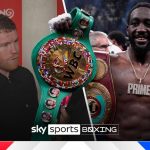

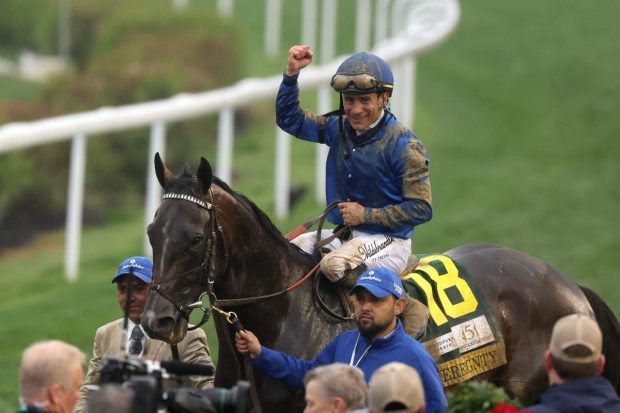
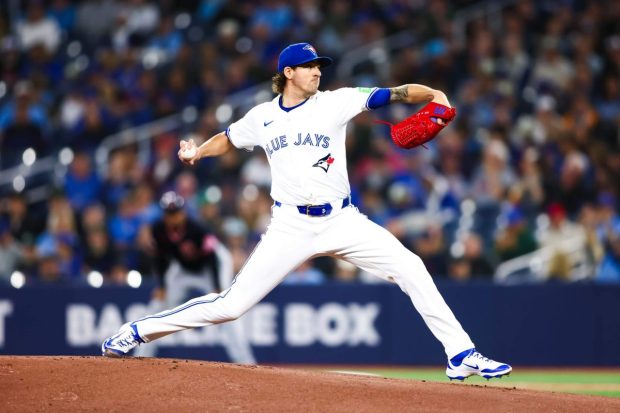
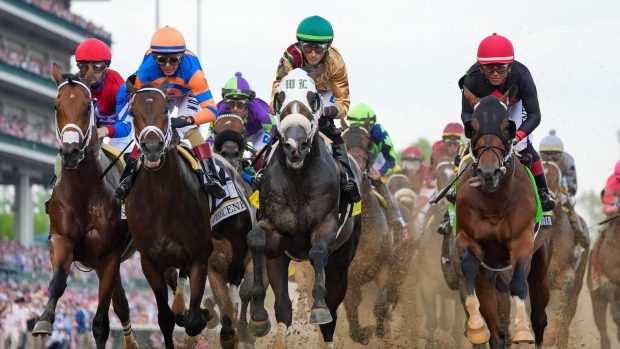
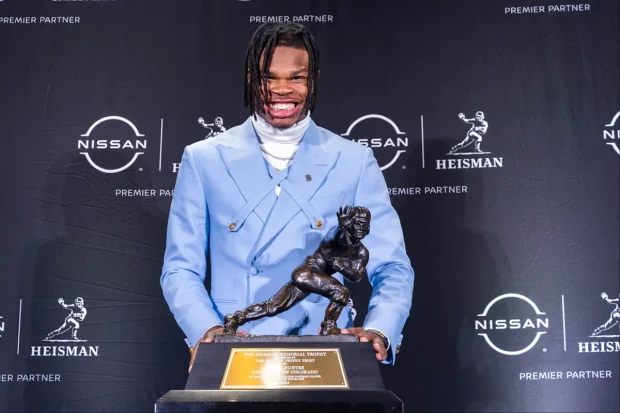
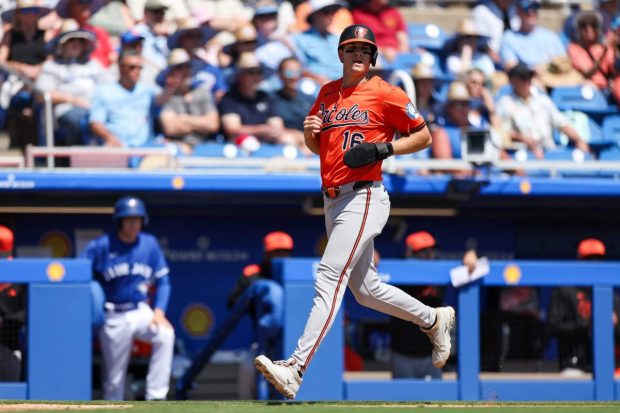
Be the first to leave a comment